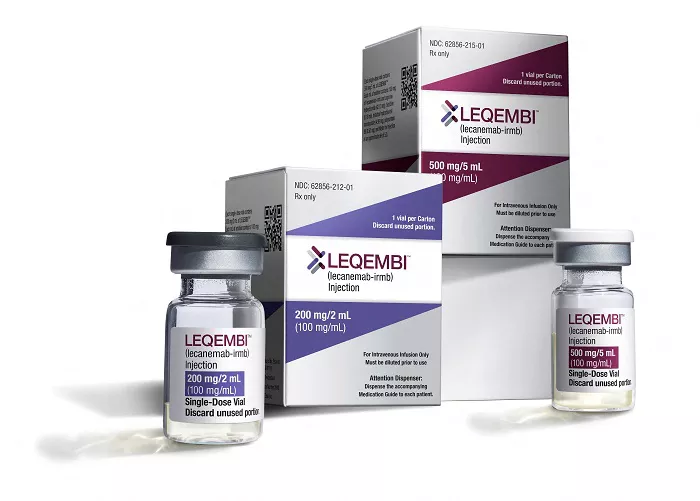In recent years, a perplexing connection has emerged in the realm of allergies – a link between tick bites and the development of meat allergies. This phenomenon, known as alpha-gal syndrome, has left many individuals grappling with unexpected allergic reactions to red meat. In this comprehensive exploration, we delve into the intricate details of alpha-gal syndrome, examining the role of tick-borne diseases, the science behind the allergic response, and strategies for diagnosis, management, and prevention. Understanding how a tick bite can lead to a meat allergy sheds light on the complexities of allergic reactions and highlights the importance of awareness and proactive measures in regions where tick-borne diseases are prevalent.
Alpha-Gal Syndrome
Alpha-gal syndrome (AGS) represents a distinctive form of meat allergy characterized by an immune response to a sugar molecule called alpha-galactose, present in the meat of mammals. While other meat allergies typically involve proteins, AGS stands out for its response to a carbohydrate. The unique nature of this allergy stems from the fact that individuals with AGS develop antibodies against alpha-galactose after being bitten by certain ticks. The most common source of exposure to alpha-gal is through the consumption of red meat, including beef, pork, and lamb. AGS can lead to a range of allergic symptoms, from hives and gastrointestinal issues to more severe reactions such as anaphylaxis.
Lone Star Tick and Beyond
The primary offender in the development of alpha-gal syndrome is the lone star tick (Amblyomma americanum). This tick species is prevalent in certain regions of the United States, particularly in the southeastern and eastern states. Lone star ticks harbor alpha-gal in their saliva, and when they bite a human, they introduce this carbohydrate into the bloodstream. The immune system then recognizes alpha-gal as a foreign substance, producing antibodies against it. Subsequent consumption of mammalian meat by individuals sensitized to alpha-gal can trigger an allergic reaction, leading to the symptoms associated with alpha-gal syndrome.
The Connection to Tick-Borne Diseases
The link between tick-borne diseases and the development of alpha-gal syndrome lies in the complex interplay between the lone star tick, the alpha-gal molecule, and the human immune system. When a lone star tick bites a human, it injects saliva that contains alpha-gal into the bloodstream. The human immune system, encountering this foreign carbohydrate, mounts an immune response by producing antibodies, including immunoglobulin E (IgE). IgE antibodies are specific to alpha-gal and play a central role in triggering allergic reactions upon subsequent exposure to alpha-gal in mammalian meat. This unique mechanism distinguishes alpha-gal syndrome from other forms of meat allergy.
Hotspots of Alpha-Gal Syndrome
The prevalence of alpha-gal syndrome is closely tied to the geographical distribution of the lone star tick. While the lone star tick is most commonly found in the southeastern and eastern United States, cases of alpha-gal syndrome have been reported in other regions and even internationally. The expansion of the lone star tick’s habitat raises concerns about the potential spread of alpha-gal syndrome to new areas. Understanding the geographic hotspots of both the lone star tick and alpha-gal syndrome is crucial for raising awareness among healthcare professionals and the general public, enabling timely diagnosis and management.
Navigating Allergic Reactions
The symptoms of alpha-gal syndrome can manifest within a few hours of consuming mammalian meat, and they vary in severity among affected individuals. Common symptoms include hives, itching, abdominal pain, diarrhea, and nausea. More severe reactions may involve respiratory symptoms such as wheezing and shortness of breath, and in rare cases, anaphylaxis—an acute and potentially life-threatening allergic reaction. The delayed onset of symptoms, typically occurring several hours after meat consumption, adds to the challenge of identifying the specific cause of the allergic reaction.
Pinpointing Alpha-Gal Sensitivity
Accurate diagnosis of alpha-gal syndrome involves a combination of clinical evaluation, patient history, and specific laboratory tests. Healthcare providers may conduct blood tests to measure levels of IgE antibodies against alpha-gal. Skin prick tests, where a small amount of alpha-gal is introduced under the skin, can also be performed to assess the individual’s sensitivity. However, diagnosing alpha-gal syndrome can be complex due to the delayed onset of symptoms and the need for specific testing for alpha-gal antibodies. In cases where meat allergies are suspected, especially in regions where lone star ticks are prevalent, healthcare professionals should consider the possibility of alpha-gal syndrome and pursue appropriate testing.
Navigating Life with Alpha-Gal Syndrome
Managing alpha-gal syndrome involves a multifaceted approach that includes allergen avoidance, symptom management, and preparedness for potential allergic reactions. Key strategies for navigating life with alpha-gal syndrome include:
Avoidance of Mammalian Meat: The cornerstone of managing alpha-gal syndrome is strict avoidance of mammalian meat, including beef, pork, lamb, and venison. This extends to processed products containing these meats.
Reading Labels and Inquiring at Restaurants: Individuals with alpha-gal syndrome must become adept at reading food labels to identify potential sources of mammalian meat or alpha-gal. When dining out, it’s essential to inquire about ingredients and preparation methods to ensure the absence of trigger foods.
Awareness of Hidden Sources: Certain products and medications may contain gelatin, a substance derived from animal tissues, posing a risk for individuals with alpha-gal syndrome. Awareness of hidden sources of alpha-gal is crucial for avoiding inadvertent exposure.
Preparedness for Reactions: Individuals with alpha-gal syndrome should carry an epinephrine auto-injector to be prepared for the possibility of severe allergic reactions. Prompt administration of epinephrine is a life-saving measure in cases of anaphylaxis.
Consultation with Healthcare Providers: Regular communication with healthcare providers, including allergists and immunologists, is essential for ongoing management. Healthcare professionals can provide guidance on dietary choices, monitor symptoms, and address any emerging concerns.
Research and Advancements: Progress in Understanding Alpha-Gal Syndrome
Ongoing research into alpha-gal syndrome continues to deepen our understanding of the condition, its prevalence, and potential avenues for treatment. Researchers are exploring factors that contribute to individual variability in response to alpha-gal, as well as investigating novel approaches for managing and preventing allergic reactions. Advancements in diagnostic tools and therapeutic interventions hold promise for improving the quality of life for individuals with alpha-gal syndrome.
Tackling the Root Cause of Alpha-Gal Syndrome
Preventing alpha-gal syndrome involves addressing the root cause – tick bites. Strategies for preventing alpha-gal syndrome include:
Tick Avoidance: Minimize exposure to ticks by using insect repellent, wearing long sleeves and pants, and avoiding areas with high tick populations, especially during peak tick seasons.
Prompt Tick Removal: If a tick is found attached to the skin, it should be promptly and carefully removed using fine-tipped tweezers. Grasping the tick close to the skin’s surface and pulling upward with steady, even pressure can help ensure complete removal.
Regular Tick Checks: Conduct thorough tick checks after spending time in areas where ticks may be present. Pay close attention to hidden areas such as the scalp, armpits, and groin.
Protective Clothing: Wear light-colored clothing to make ticks more visible and consider treating clothing with permethrin, an insect repellent that can be applied to clothing for added protection.
Landscaping Practices: Modify landscaping practices to create tick-safe zones, reducing the likelihood of ticks in outdoor recreational areas.
Conclusion
In conclusion, the link between tick disease and meat allergy, as observed in alpha-gal syndrome, unveils a fascinating and complex intersection of immunology, entomology, and allergy. As cases of alpha-gal syndrome continue to be reported, raising awareness among healthcare professionals and the public is paramount for early diagnosis and effective management. By understanding the unique mechanisms at play, embracing strategies for allergen avoidance, and staying informed about ongoing research and advancements, individuals with alpha-gal syndrome can navigate the intricate landscape of this distinctive meat allergy. Proactive measures for tick prevention further contribute to the broader goal of tackling the root cause and minimizing the incidence of alpha-gal syndrome in regions where tick-borne diseases are prevalent.
[inline_related_posts title=”You Might Be Interested In” title_align=”left” style=”list” number=”6″ align=”none” ids=”3152,3033,3031″ by=”categories” orderby=”rand” order=”DESC” hide_thumb=”no” thumb_right=”no” views=”no” date=”yes” grid_columns=”2″ post_type=”” tax=””]
































